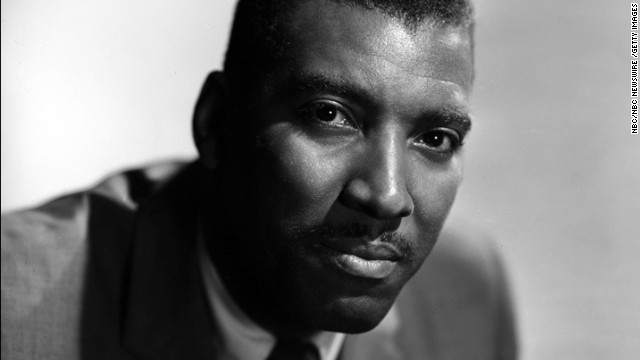Bob Teague, WNBC Reporter Who Helped Integrate TV News, Is Dead at 84
Share
Explore Our Galleries
Breaking News!
Today's news and culture by Black and other reporters in the Black and mainstream media.
Ways to Support ABHM?
By Douglas Martin, The New York Times
Bob Teague, who joined WNBC-TV in New York in 1963 as one of the city’s first black television journalists and went on to work as a reporter, anchorman and producer for more than three decades, died on Thursday in New Brunswick, N.J. He was 84.
The cause was T-cell lymphoma, his wife, Jan, said.
Mr. Teague established a reputation for finding smart, topical stories and delivering them with sophistication. Though he later criticized TV news as superficial and too focused on the appearance of reporters and anchors, his own good looks and modulated voice were believed to have helped his longevity in the business.
Mr. Teague followed in the footsteps of Mal Goode, who became the first black network TV reporter in 1962. Mr. Goode was assigned to the ABC News United Nations bureau because network executives feared his presence in the main studio would be too disruptive, TV Guide reported. WNBC, the NBC-owned station in New York, hired Mr. Teague, a seasoned newspaper reporter, the next year. As racial tensions mounted in the 1960s, he was often sent into minority neighborhoods. In July 1963, he was a principal correspondent for “Harlem: Test for the North,” an hour long network program prepared after riots broke out in the neighborhood…
The changing public response to Mr. Teague and others in the first wave of black television journalists was suggested in a letter he received that he described in an article in The New York Times Magazine.
“When you first began broadcasting the news on television, I watched you every night, but I realize now, years later, that I was so conscious of the fact that you were black that I didn’t hear a word you said about the news,” it read.
“Now, I am happy to say, I still watch you every night, but only because you are a damn good newscaster.”
Read the Original Article Here
Read more Breaking News Here










Comments Are Welcome
Note: We moderate submissions in order to create a space for meaningful dialogue, a space where museum visitors – adults and youth –– can exchange informed, thoughtful, and relevant comments that add value to our exhibits.
Racial slurs, personal attacks, obscenity, profanity, and SHOUTING do not meet the above standard. Such comments are posted in the exhibit Hateful Speech. Commercial promotions, impersonations, and incoherent comments likewise fail to meet our goals, so will not be posted. Submissions longer than 120 words will be shortened.
See our full Comments Policy here.